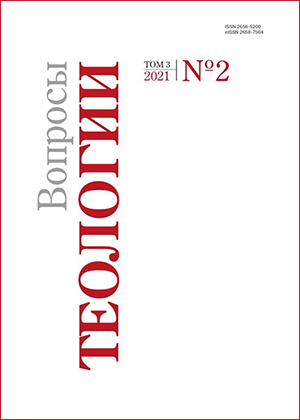Johann Gottlieb Fichte as a theologian
Abstract
The article examines the philosophical work of Johann Gottlieb Fichte (1762–1814) in terms of his theological views. An analysis of Fichte’s accusations of atheism is provided. The paradoxes of “spirit” and “spiritual” in human life itself and in Fichte’s own doctrine of religion are considered. A creative reconstruction is carried out for those parts of “science”, where the productivity of the very idea of theology and philosophy of religion is presented. The article investigates the theoretical implications of the idea of Fichte’s “I” and, on the basis of the inclusion of historical and philosophical generalizations, the so-called “pre-Fichte” criticism of I.Kant. The relevance of the philosophy of Fichte’s religion is revealed and its connection with the modern era is investigated. The thesis that theology is the science of the Absolute as the subject of a person’s creative search is substantiated. Also, the article supports the creative productivity of the very idea of theology and philosophy of religion. The authors compare the views of K.Forberg and Fichte. God, according to Forberg, is the regulatory principle of ethics, and religion itself is not a theory, but the duty of a moral person. But man, according to Fichte, is not called upon to create a moral “world order”. On the contrary, he himself is created and supported by it. The work concludes that the time of reason does not cover the entire totality of time. The people are not just the majority of the population, their basis lies in the moral substance. Therefore, one of the main tasks of the state is to develop the humanitarian culture of the people.
Keywords:
the problem of the Absolute, the absolute I, theology, religion, the paradoxes of the spiritual, the creative productivity of ideas, the philosophy of religion
Downloads
References
References
Downloads
Published
Issue
Section
License
Articles of "Issues of Theology" are open access distributed under the terms of the License Agreement with Saint Petersburg State University, which permits to the authors unrestricted distribution and self-archiving free of charge.




